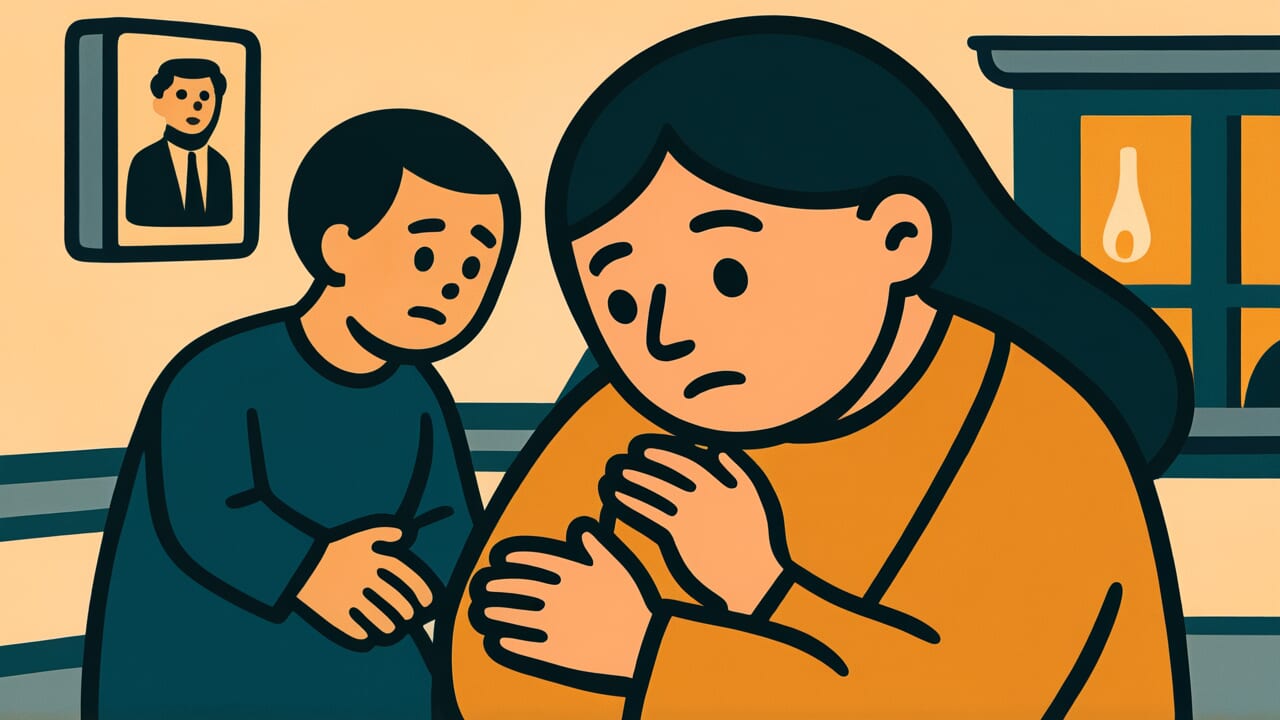- “I notice there may be an issue with the Japanese proverb you’ve provided. “せつない時は親” doesn’t appear to be a complete or standard Japanese proverb. “せつない” means “painful/heartbreaking/sad” and “時は親” would mean “time is parent/when it’s parent,” but this doesn’t form a coherent proverb structure. Could you please verify the complete proverb? It might”的读音
- “I notice there may be an issue with the Japanese proverb you’ve provided. “せつない時は親” doesn’t appear to be a complete or standard Japanese proverb. “せつない” means “painful/heartbreaking/sad” and “時は親” would mean “time is parent/when it’s parent,” but this doesn’t form a coherent proverb structure. Could you please verify the complete proverb? It might”的含义
- 起源和词源
- 使用例子
- 普世智慧
- 当AI听到这句话时
- 对今天的启示
“I notice there may be an issue with the Japanese proverb you’ve provided. “せつない時は親” doesn’t appear to be a complete or standard Japanese proverb. “せつない” means “painful/heartbreaking/sad” and “時は親” would mean “time is parent/when it’s parent,” but this doesn’t form a coherent proverb structure. Could you please verify the complete proverb? It might”的读音
Setsunai toki wa oya
“I notice there may be an issue with the Japanese proverb you’ve provided. “せつない時は親” doesn’t appear to be a complete or standard Japanese proverb. “せつない” means “painful/heartbreaking/sad” and “時は親” would mean “time is parent/when it’s parent,” but this doesn’t form a coherent proverb structure. Could you please verify the complete proverb? It might”的含义
“I notice there may be an issue with the Japanese proverb you’ve provided. “せつない時は親” doesn’t appear to be a complete or standard Japanese proverb.
“せつない” means “painful/heartbreaking/sad” and “時は親” would mean “time is parent/when it’s parent,” but this doesn’t form a coherent proverb structure.
Could you please verify the complete proverb? It might”是一句表达人类自然情感的谚语。无论你的处境变得多么痛苦或困难,你的父母最终是你可以依靠的人。
这里的”setsunai”一词并不像现代用法中那样表示浪漫的渴望。相反,它意味着一种令人窒息、绝望的状态,让你感到走投无路和不知所措。
即使当你独立生活时,某些情况也会让你想到你的父母。疾病、经济困难或感情问题都可能引发这种反应。你自然想要寻求他们的帮助。
这并不是什么可耻的事情。这是完全正常的人类情感。
这句谚语提醒我们亲子关系有多么深厚。它向我们展示了父母在我们生活中的重要性。
它还教给我们关于人性的一些根本道理。没有人能够完全独自生活。我们都需要支持,而家庭在提供这种支持方面发挥着至关重要的作用。
即使在今天,人们仍然使用这个表达来描述面临困难时转向父母的自然冲动。
起源和词源
关于这句谚语的起源,没有明确的书面记录。然而,我们可以对这个短语的构成方式做出有趣的观察。
“setsunai”这个词值得特别关注。今天,人们将其写作”切ない”来表达苦乐参半的浪漫情感。但在古代,它被写作”切なし”,意思是”痛苦的”或”令人痛苦的”。
它描述了一种令人窒息的痛苦状态,你几乎无法在压力下呼吸。
这句谚语很可能源于日本的传统家庭制度。在江户时代之前,大多数人一生都在出生地度过。亲子关系比今天更加牢固。
父母在经济和情感上都是最终的安全网。
儒家哲学也发挥了重要作用。尊敬和孝敬父母被认为是最高的美德。但这句谚语实际上并不是道德教导。
相反,它捕捉了诚实的人类情感。即使是最独立的人在真正绝望时也会想到他们的父母。这句谚语用短短几个字完美地捕捉了这种情感真理。
它可能自然地从日常生活中产生,并通过口耳相传而传播。
使用例子
- 我辞职创业,但当失败时,我真正理解了”I notice there may be an issue with the Japanese proverb you’ve provided. “せつない時は親” doesn’t appear to be a complete or standard Japanese proverb.
“せつない” means “painful/heartbreaking/sad” and “時は親” would mean “time is parent/when it’s parent,” but this doesn’t form a coherent proverb structure.
Could you please verify the complete proverb? It might”
- 当我住院时,我深深感受到”I notice there may be an issue with the Japanese proverb you’ve provided. “せつない時は親” doesn’t appear to be a complete or standard Japanese proverb.
“せつない” means “painful/heartbreaking/sad” and “時は親” would mean “time is parent/when it’s parent,” but this doesn’t form a coherent proverb structure.
Could you please verify the complete proverb? It might”
普世智慧
“I notice there may be an issue with the Japanese proverb you’ve provided. “せつない時は親” doesn’t appear to be a complete or standard Japanese proverb.
“せつない” means “painful/heartbreaking/sad” and “時は親” would mean “time is parent/when it’s parent,” but this doesn’t form a coherent proverb structure.
Could you please verify the complete proverb? It might”告诉我们人类对他人的根本依赖。它揭示了血缘关系的神秘力量。
随着我们长大,我们试图从父母那里独立。我们想要靠自己的力量生活。这是健康发展的标志。
但无论我们变得多么强大,无论多么成功,人类都无法完全独自生活。这就是我们的本性。
有趣的是,这句谚语并没有说你”应该”依靠父母。它描述了实际发生的事情——你”最终”依靠他们。这不是关于逻辑或道德。
这是关于情感和本能。当痛苦时,我们寻求父母。这在人类身上已经存在了数千年。
亲子关系包含着超越逻辑的东西。即使你们疏远了多年,在真正的困难中,你父母的面孔也会出现在你的脑海中。
父母也无法忽视孩子的痛苦,无论过去了多少时间。这种相互联系可能是我们进化出来确保人类生存的生物程序。
这句谚语教导我们承认人类弱点的重要性。你不必表现得坚强。你不必独自承担一切。
有人可以依靠并不可耻。实际上,这是一种祝福。
当AI听到这句话时
父母与子女平均共享50%的基因。这个数字在进化生物学中至关重要。从基因的角度来看,帮助你的孩子意味着保护自己的副本。
相反,当孩子转向父母时,他们本能地选择与自己共享一半基因的人。他们选择从帮助他们中获得遗传利益的人。
令人着迷的是人类大脑如何对”setsunai toki”等危机状态做出反应。它绕过理性的成本效益计算,激活寻求父母的回路。朋友可能背叛你。恋人可能离开。
但父母面临生物约束,即使在关系紧张时也很难抛弃孩子。这不是关于情感。这是由数百万年选择压力设计的生存策略。
注意这种本能如何在”setsunai toki”期间特别激活。在正常时期,人们保持独立。但当生命或生计面临真正风险时——当遗传生存受到威胁时——这个古老的回路优先考虑。
人类大脑包含一个程序,测量危机严重程度并自动选择最可靠的支持者。这句谚语准确地识别了那个精确的生物系统。
对今天的启示
这句谚语教导现代人在人际关系中拥有”最后手段”的重要性。
现代社会强烈要求独立和自力更生。靠自己的力量生活而不依赖任何人通常被视为美德。
但这有时会造成孤独。它可能导致人们感到走投无路但无法向任何人寻求帮助的情况。
转向你的父母不是软弱或依赖。实际上,了解自己的极限并适当寻求帮助显示了真正的力量。毕竟,没有人是完美的。
这句谚语也为处于父母角色的人传达了重要信息。成为你的孩子可以转向的人,无论他们多大,当他们遇到困难时——这可能是最重要的父母角色。
对于那些没有父母或无法依靠父母的人,你可以在生活中找到类似父母的人物。导师、前辈、朋友。
仔细培养与无条件接受你的人的关系会丰富你的生活。它给你克服困难的力量。



评论